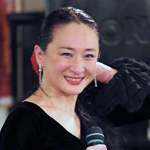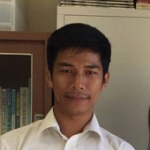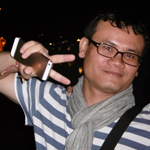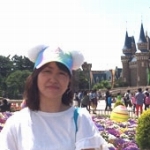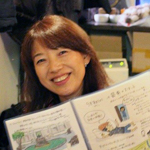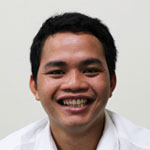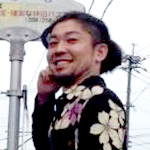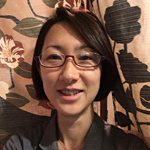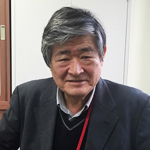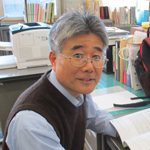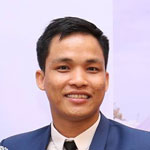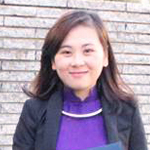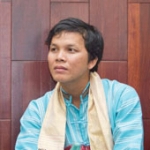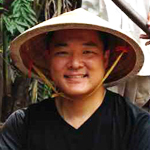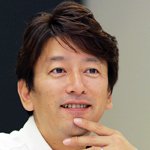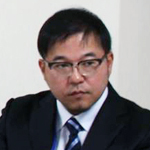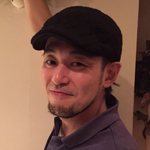We have opened a school where young Cambodians and Vietnamese can learn Japanese. Knowledge of the Japanese language will help them to live stable lives.
Moreover, we want them to become a bridge between Japan and their countries.
We are aiming to bring happiness and joy to these young people and those related to them.


Our activities began in 2015. Thus far, only one of our intentions has come to fruition: we opened a Japanese language school named "MANABIYA TSUBASA" in Vietnam in 2016. We respect the students’intentions of learning by themselves. We encourage them to grow as human beings by studying Japanese culture and customs.
By learning Japanese, young people in Vietnam and Cambodia have the opportunity to take a close look objectively at their own countries and cultures. We hope they become sensitive and perceptive, with broad minds.
By learning Japanese, they will become interested in Japan. In the future, they may be able to find jobs which are related to Japan. They can make use of what they have learned for the benefit of their own countries. We would like to give them the opportunity to live a stable life.
At MANABIYA TSUBASA, three graduates who studied Japanese at the NPO are currently teaching Japanese. MANABIYA TSUBASA is a place where they can stand on their own two feet.
We are indebted to donors who have learned Japanese and found jobs relating to Japanese after graduation, individuals in Japan who support us, and companies who have employed our students. Our school has been supported by their donations.








In a study room of MANABIYA TSUBASA, a motto, "Study and think for yourself!" is hung on the wall. "Study and think for yourself!" is the consistent policy of our NPO.
It is only recently that our instructors have started to learn Japanese in earnest. It is premature to say that they have very high Japanese language ability. We can merely say that the instructors were born a little earlier and, therefore, started to study Japanese earlier than the students.
Several of the young people have visited Japan and became fond of it. Thereafter, they decided to study Japanese more deeply, and finally have become the instructors. Young people who have such a strong will to study have become instructors of Japanese. They are only a little older than the students. Therefore, this school is not a place to teach Japanese, as much as a place where both instructors and students study and grow together.
In the lessons, we show the students Japanese plays and teach them about customs. We also use Japanese comics and games as teaching materials. We guide our instructors while they teach students. We hope that they will respect the intention of the students who eager to study by themselves. We also hope that both the instructor and students will grow and mature through knowing about Japanese plays and customs.
We hope the students feel that they are interested in Japan, or they want to work in Japan in the future. Furthermore, it would make us happy if some students would see their instructors and say,“I want to be a Japanese instructor like you!”
MANABIYA TSUBASA is a place where children can be educated. However, many of the young people are poor, so they cannot continue to study. They eventually give up on their hopes and dreams. Although their parents work hard to give them a college education, unfortunately they cannot find suitable work after graduation. They are disappointed because they are not able to meet their parents’ expectations. In reality, we have met lots of young people suffering from unemployment.
We are simultaneously working on a project called the Finding Work Project. The purpose of the project is to give young people a chance to live in a stable way and to become economically and psychologically independent.
We support them so that they can learn Japanese in order to utilize it as an effective means to find employment. Currently, in Vietnam and Cambodia, there are very few jobs available for women. One of the biggest challenges for the school is to find suitable employment for female students.
Opened in 2016, our school is located in a suburb of Phan Rang (a Mid-Southern Vietnamese city). Vietnam is a multiethnic country, home to 53 ethnic groups.
The majority ethnic group in Vietnam is the Kinh people. They account for over 80% of the whole population, and are of ethnically Chinese origin. In the vicinity of Phan Rang City live indigenous people called Cham. The Cham people have their own culture, such as traditional rituals, textiles, costumes, Cham languages and so on. The My Son ruins are part of Cham history.
They have elements in common with Cambodia’s Angkor Wat, being influenced by Hindu culture.
We decided to open a school in Vietnam or Cambodia without having undertaken feasibility studies in other countries around the world. Our project resulted from serendipity. We happened to have a link with people in Vietnam and Cambodia. Before we organized the NPO, we had been involved with the indigenous Cham people. Many of them were from a village called Phan Rang. For that reason, Phan Rang was chosen as the place to open the first schoolhouse.
In Vietnam, Hanoi and Ho Chi Minh are large cities. The prices of commodities in such big cities are higher than in rural areas. Economic activities and educational institutions are concentrated in large cities. The journey to Phan Rang is arduous and time-consuming. First, it is necessary to take a one-hour flight from Ho Chi Minh to a town called Nha Trang. From there, it is another two hours’ ride. Most of the inhabitants of Phan Rang City are Kinh people. In its vicinity, villages where Cham people live are scattered.
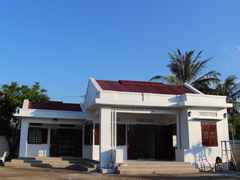
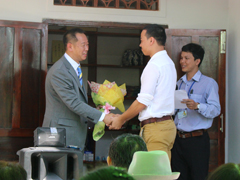
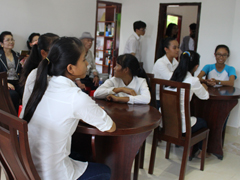
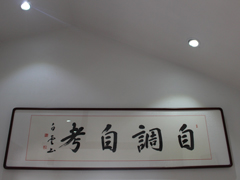




At first we opened a school in Fuk Nyeon village, but the land was rather barren, and the village was not economically successful. We heard that some children had to drop out of school to help with household chores until recently.
According to the statistics from the United Nations Educational, Scientific and Cultural Organization (UNESCO), in 2012, 24.5% of young people go to university in Vietnam. But approximately only 10% of graduates are able to find employment in work related to their major.
Even after graduation, many people are unable to soon find employment. The situation is particularly serious among the Cham people, who find it difficult to find a job even if they graduate from college. In spite of having gained expertise at university, they may have to go back to their hometown and become engaged in a family business such as farming. In such an environment, they may be able to improve their chances by capitalizing on their Japanese language ability.
The Cham people live in both Vietnam and Cambodia. In the days when the Kingdom of Chăm Pa was at its most affluent, many Cham tribes existed. They moved to other areas freely because there were no borders. However, some of them were persecuted and fled to Cambodia.
Not only people in Vietnam and Cambodia, but also people from many other countries are interested in Japan. Learning about other cultures at a young age will help people mature and grow.
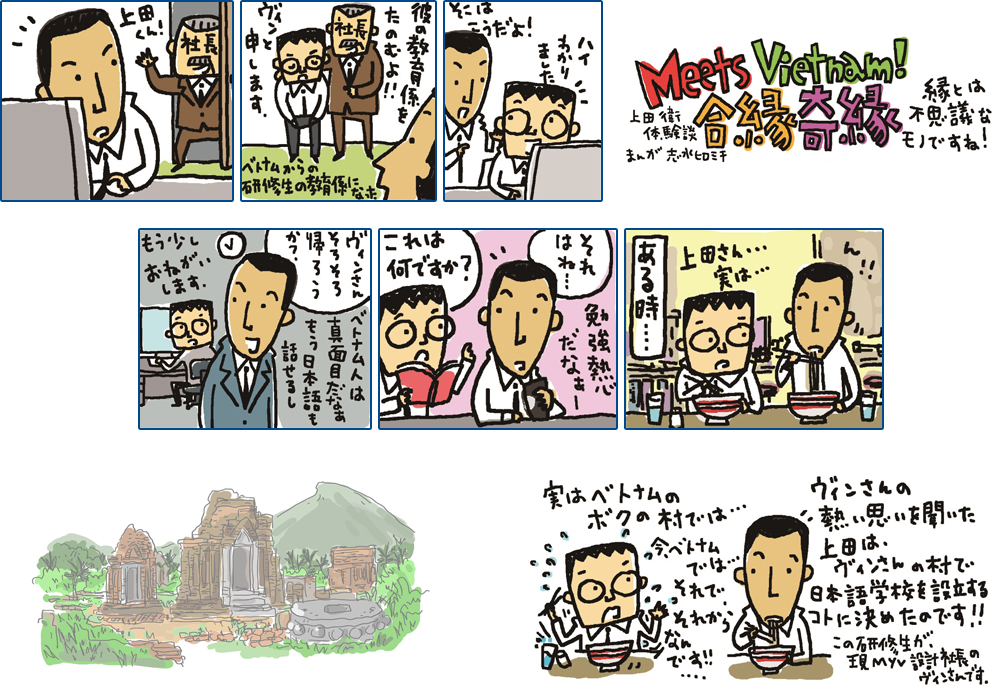
We ask only one thing as a qualification of those who wish to participate … the ability to speak Japanese. We are not experts in education. Even now, we are feeling our way in these activities by trial and error.
On seeing the sincerity and dedication of young people in Vietnam and Cambodia, increasing numbers of people are offering to cooperate with us.
Bridges across national borders can be built between people and their counterparts in Japan, even if they cannot speak English, even if they cannot speak any other language except their own. Young people want to learn the Japanese language. The Japanese language happens to be our native language, so we can use it to communicate with them.
If you are interested in any of our activities, please join us.
